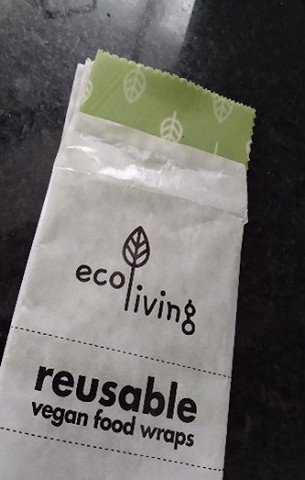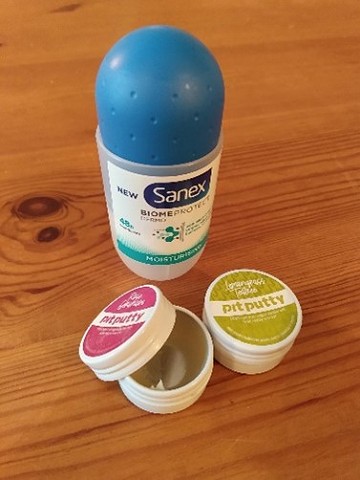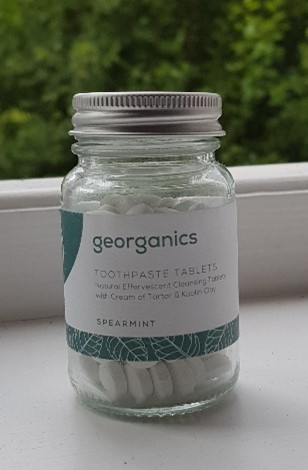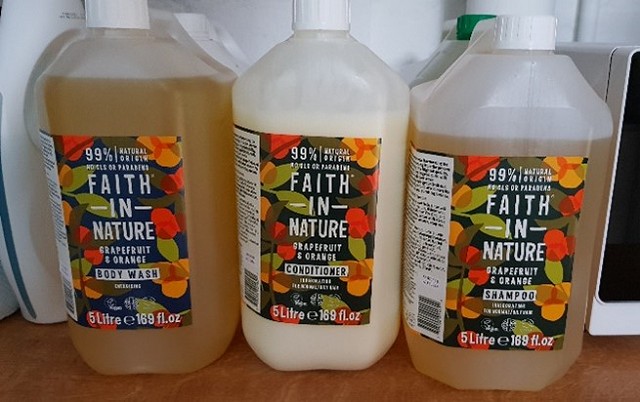My name is Cherie, and I haven’t used clingfilm for (nearly) a month…
Here at FRM we do try to live sustainable lives, and several of us have made various “plastic free” pledges for Plastic Free July. This short, light-hearted article summarises some of our experiences, the good, the bad and the ugly (or the “not very tasty”).
My pledge was not to use clingfilm. To be honest, this shouldn’t have been too much of a challenge as I don’t use much of it anyway, just for wrapping the occasional half an onion or pepper, or for splitting bulk purchases for the freezer. I admit to being very excited about trying out wax wraps. I’ve been wanting to try them for some time as the colours and patterns are so enticing, but the cost has put me off - about £20 for a pack of three! But hey, if they last the year or more they are meant to, and they reduce one of the more “difficult” plastic steams, that’s got to be a good thing. Not to mention the wrestling with the clingfilm dispenser…! So, I was delighted with the look of my lovely new wax wraps. Less delighted with using them in practice. Perhaps it was the brand I purchased, but I found that their adhesion / mouldability isn’t great to be honest. Things were coming unwrapped in the fridge, to the point where the only things I use them for were where I might have just covered it with a plate. I still have one wrap pristine and unused, looking pretty in the kitchen drawer. But no, I didn’t resort to clingfilm, I am pleased to say, and I doubt I’ll go back to it. My inner 70s child emerged with my love of Tupperware (other brands are available), of course still plastic but extensively reusable, and an increased use of (recyclable) kitchen foil. I admit that even if the wraps had been excellent at their job, I’m not sure I would trust my husband not to throw them away after he’d eaten his packed lunch!

This month, Sarah has been using a natural, refillable deodorant. She tried it a little while ago, but found her skin reacted to the bicarbonate – one of the common ingredients in natural shampoo. She’s now trying one of the “sensitive range”, which is bicarb-free and much gentler on the skin. All is good, she loves the refillability of it, but has been nervous of putting the deodorant through its paces for sports. I, too, have tried natural deodorants over the last couple of months, and similarly suffered irritation (I thought it was the heat until Sarah mentioned it too), and also didn’t trust it for my meagre athletic efforts. The one I tried comes in some delicious scents, but at £10 a go, I opted for a couple of trial pots (still a princely £2.50 each, pictured with a regular deodorant for comparison). This brand doesn’t offer a refill, and it was some time before I realised that the cute little metal pots they come in are likely to be too small to be recovered by recycling. Luckily, my children are of an age where they love a small pot to put random things in.

Paul has been incredibly brave in one of his pledges… As the secretary of Sustainable Bridgnorth, a local community environmental group that has organised a substantial campaign on Plastic Free July under its ‘Prevent Pointless Plastics’ activity, Paul has been doing his bit, with mixed success (!) on a few initiatives for this month. The ones that involved personal ‘behaviour change’ included a pledge to try and reduce plastic use by using toothpaste tablets instead of conventional toothpaste, which comes in generally unrecyclable packaging. The tablets are predominantly bicarbonate of soda, and the idea is that you chew them until they dissolve in your mouth and then brush your teeth. Paul was less than impressed with the taste (note the amount remaining after a month!), and had to limit use to once a day (using conventional toothpaste at other times when he has less willpower!). That said, he has promised to persevere with part-time use and save some packaging. However, there are lots of brands / flavours on the market so maybe others are more palatable!

Paul’s most positive change was expanding the use of refillable containers. They already had 5 litre bottles of hand wash, body wash and washing up liquid at home, and have now increased this to include shampoo and conditioner. It requires some room for storage of bulk containers, but individual bottles are refilled every two weeks or so, and Paul’s family found that each time it is quite satisfying thinking that is another plastic bottle avoided. Their local refill shop will also refill the bulk 5 litre containers at a discounted rate, avoiding yet more packaging. The initial bulk purchase can be expensive, best to look around first, these ‘Faith in Nature’ ones were on a ‘three for two’ deal which made them more affordable, although still expensive; other brands are available more cost-effectively. To quote Paul: “I wish I had done this years earlier!”.

Behaviour change is key for widespread adoption of these initiatives. I’m sure we all remember the introduction of the plastic bag tax – one discount store local to me at the time would proudly ask customers if they would like a “free” carrier bag, while other shops would rightly be charging. Fast-forward a few years and it is now rare to someone with a single-use bag; I feel embarrassed and ashamed if I happen to forget to take a reusable bag shopping!
I will definitely be following Paul’s good example on the bulk-buy of shampoo and shower gel. One of my bug-bears of eco-friendly plastic-free alternatives is the cost. I am sure that buying bulk will be cheaper longer term, but many of the products in our local refill shop are so very expensive, likely beyond the reach of a large proportion of our population. One reason for the higher cost is often cited as superior quality, coupled with lower turnover of each product line. It might be expected that the cost may come down as demand increases, but my fear is that in order to invoke behaviour change on a large scale, the cost differential would have to reduce significantly. Extended Producer Responsibility may drive some of this cost differential down, also making mainstream products much more sustainable towards a par with eco-friendly niche alternatives.
It is encouraging to see such growth and interest in the area of plastic-free and pared-back packaging. The refill shop in the town where I live was opened during the economic crisis that accompanied Covid-19, and similarly Bridgnorth, where our office is, now sports two such shops. And they are special places to shop, even if it costs me a fortune every time I visit (not least for my penchant for the yummy chocolate honeycomb pieces that they sell there!). They are a far cry from the value “weigh and save” shops I recall from my student days, where you could get (stale) cornflakes, cake mix and washing powder by the gram or kilogram at bargain prices.
We’d love to hear how your plastic free pledges went. And of course, if you need any consultancy support for waste and resources, please do contact us on info@frithrm.com or 01746 552423.
Cherie Whiteman Associate Director, Frith Resource Management Ltd













